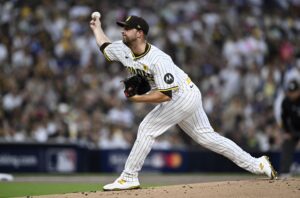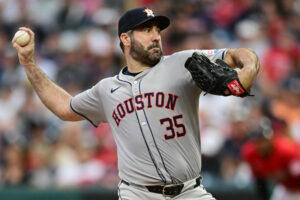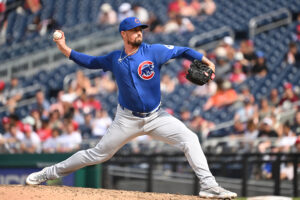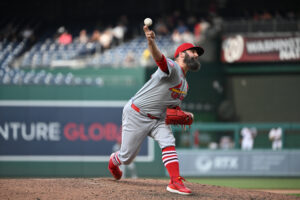The presumptive favorite going into this year’s MLB Home Run Derby was Shohei Ohtani with his major league-leading 33 long balls. However, the night belonged to Pete Alonso of the New York Mets. Alonso set a derby record while scoring his second consecutive win.
Second Home Run Derby With The Coors Effect
The last time the derby was held at Coors Field was 1998. It featured the likes of Mark McGwire, Jim Thome, Vinny Castilla, and the winner, Ken Griffey Jr. The format was much different then, with a slower pace and lower home run totals. This year’s derby was the first time the current timed format would be used at Coors. It did not disappoint.
Much was made of the decision to use regular baseballs that had not been stored in the humidor, and rightly so. It was evident immediately that the eight stars would put on an excellent show. In each round every batter had at least one homer over 475 feet. By the end of the night, there were multiple home runs over 500 feet. Trevor Story set a derby record with a 518-foot blast. Juan Soto would exceed that with a shot of 520 feet near the end of the first round.
Opening Round
In the first round, Trey Mancini narrowly edged Matt Olson with a 23-22 finish. Then Trevor Story rode the support of the crowd and home-field advantage to victory over Joey Gallo. Gallo only lost by a single home run, but many thought he would both push for the distance record and advance. Story’s 20 home runs and the elevation proved to be too much for Gallo.
Then Pete Alonso stepped up and, with seemingly little effort, mashed 35 home runs, a record for the opening round of the derby. Eight of Alonso’s opening round homers went beyond 475 feet. It was a bad luck draw for Salvador Perez who followed Alonso with 28 home runs of his own, enough to advance to the second round against any other competitor.
The next pairing featured Soto and Ohtani. It was an even matchup with great drama. The two stars each had 22 home runs at the end of their time. During the first tie-breaker, they would match one another with six apiece. The final tie-breaker switched from a timed format. Each batter had three swings. Soto was selective, and it paid off as he hit three home runs. With no margin for error, Ohtani was eliminated when his first hit failed to clear the fence.
Semi-Finals
Fatigue was likely a factor in the second round. Exit velocity and total distance dropped, as did total home runs hit. The first matchup featured Story against Mancini. Story managed 12 in front of the hometown crowd, but Mancini hit his 13th with time to spare, which ended the night for the Rockies shortstop. Had anyone else knocked Story out, the crowd would have been more disappointed. But Mancini’s return to baseball after battling colon cancer in 2020 has been one of the best storylines of the season.
Soto hit 15 home runs in the second matchup. The prolonged battle with Ohtani to advance was likely a factor as earlier it appeared Soto might be an unstoppable force. Alonso easily surpassed him with a minute and a half left to go.
Back-to-Back Home Run Derby Champ
Alonso, whose nickname is “Polar Bear,” stayed plenty cool under the pressure of the derby as he hit home run after home run. He spent much of the night bobbing his head to the music while taking mammoth, smooth cuts. He was in sync with his pitcher, Dave Jauss, the Mets’ bench coach. Mancini opened the finals with 22 home runs, despite the final round lasting two minutes, instead of three. For a moment it looked like Alonso might be in trouble, but he once again topped the competition, hitting his 23rd homer with time left on the clock. The 2019 derby champ even managed to hit one 509 feet in the final round.
Main Photo:
Embed from Getty Images
Players Mentioned:
Shohei Ohtani, Pete Alonso, Trevor Story, Juan Soto, Trey Mancini, Matt Olson, Joey Gallo, Salvador Perez, Mark McGwire, Jim Thome, Vinny Castilla, Ken Griffey Jr.






